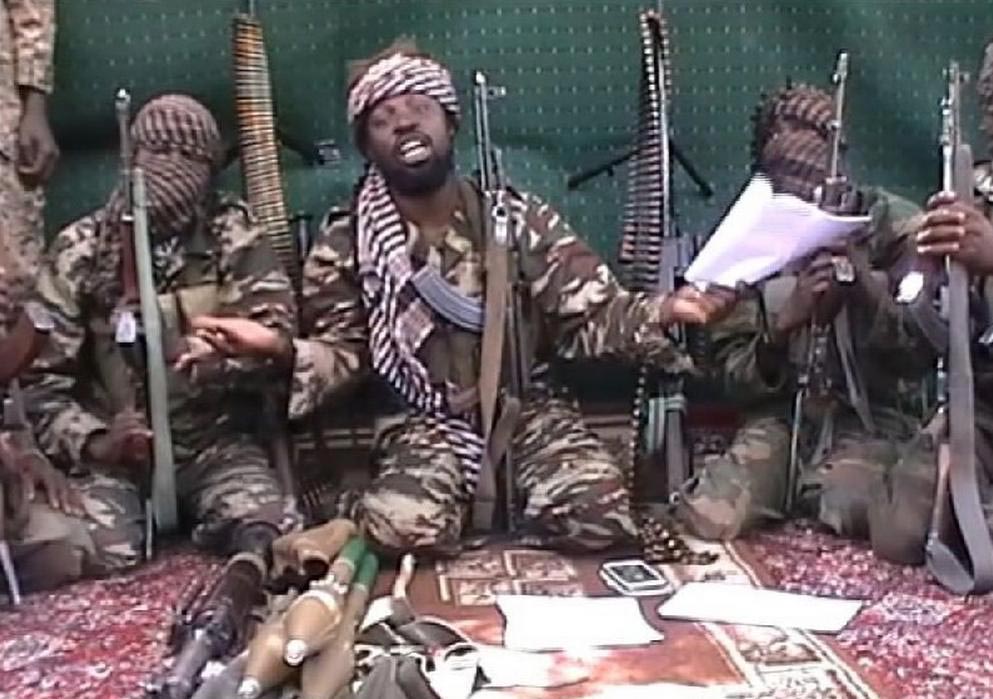A special report released Thursday by Reuters has revealed how the political differences between the leadership at the federal level and those of the states worst hit by the insurgency have helped to inflame the attacks in the North-east.
Titled “The Rift Behind Nigeria’s Torment”, the report which identified the three factors of politics; corruption and administrative ineptitude for the increased cases of terrorism in the North-east. noted that the fact that President Goodluck Jonathan and the governors of the affected states do not belong to the same political party has inadvertently helped to stoke the fire of insurgency in the North-east part of the country.
“Divisions, low morale and corruption within the military have allowed the Islamist militants to take over large swathes of Nigeria’s northeast,” the report said, adding that: “A bitter struggle between the federal government in Abuja and at least two state governors in the northeast has made it harder to coordinate a response to the group, say analysts and security sources.”
While President Jonathan belongs to the ruling Peoples Democratic Party (PDP), all the three states of Adamawa, Borno and Yobe, where state of emergency has been declared and where insurgents’ attacks have been fiercest are controlled by governors in the main opposition party, the All Progressives Congress (APC).
According to the report, President Jonathan and Governor Kashim Shettima of Borno State had had a frosty relationship arising from the latter’s remark last February that the Boko Haram members are better equipped and motivated than the men of the Nigerian military.
To support the governor’s assertion, the report pointed out that:
“In pure numbers, Boko Haram is out-matched. It has an estimated 6,000 to 8,000 members, three security sources said, whereas a Nigerian task force in Borno State numbers around 12,000, including soldiers and police.
But soldiers told Reuters that morale is low. Their commanders pocket some of their salaries, they often don’t have enough to eat, and they live in fear of Boko Haram attacks, some said.
“They (Boko Haram) are better equipped,” one soldier told Reuters by telephone, adding that he couldn’t stand up to a Boko Haram attack at his security post. “I’m taking a knife to a gunfight,” he said.
The report further blamed the Nigerian military for tardiness and routine failure to respond to security issues, as a factor that emboldened the insurgents. The report cited the failure of the military to maintain the aircraft drones it bought from Israel, which could have been used to wage the war against the insurgents after the kidnap of the Chibok students, but lamented that the drone had remained unserviced and so was grounded.
According to the report, “Widespread corruption means a lack of investment in training and failure to maintain equipment. Money is often wasted. Nigeria bought Israeli surveillance drones in 2006 that might have been used to hunt for the girls, but poor maintenance has left them grounded, the aircraft’s manufacturer said.”
It lamented further that although the Nigerian military receives allocation of about N1 trillion annually, soldiers in the North-east are “stretched”, quoting some of the soldiers as saying.
The report reiterates the narrative that if the military had acted promptly, the abduction of the over 200 girls would have been avoided. It narrates the experience of Mr. Danuma Mphur, the Chairman of the Parents’ Teachers Association (PTA) of Government Secondary School, Chibok, who had prior information about the attack on Chibok. Mphur was said to have called the police and other security operatives in the surrounding asking for reinforcement of the 15 soldiers that were on ground. But lamented that no help came, more than three hours after the security authorities were hinted.
But Brig. Gen. Chris Olukolade, the army spokesman, had explained that the reinforcement being sent to Chibok on the night of the attack was ambushed and killed by the insurgents.
It said: “Interviews with witnesses to the kidnapping, Nigerian military and security officials, Western diplomats and counter-terrorism experts, highlight a series of failings by politicians and the military in the struggle against the group, not just in the hours leading up to the raid on the school, but over several years”.
It argued that the failings in the military over the years had helped to weaken the combat readiness of the troops, which the insurgents have discovered and taking full advantage of.
It cited the attack of last December of a military base in Maiduguri Air Force base, where the Boko Haram fighters destroyed two helicopters and three military aircraft. And that fearing that another attack could ground the entire arsenal of the Force, the remaining helicopter gunships were moved to Markurdi and Port Harcourt, the Benue and Rivers States’ capitals respectively, which are reasonable distant from the war field.
“The military’s weakness was evident again in February when dozens of fighters loyal to Boko Haram descended on a remote military outpost in the Gwoza hills, about 100 km (60 miles) east of Chibok.
The fighters attacked using Hilux trucks mounted with machine guns over ground that offered little cover, a security source said. In a battle lasting hours, 50 insurgents and nine Nigerian troops were killed, the source said. Despite those losses, the militants succeeded in looting the base of its stockpile of 200 mortar bombs, 50 rocket-propelled grenades and hundreds of rounds of ammunition.
Two weeks later, Boko Haram fighters attacked a college in Buni Yadi in Yobe State, which borders Borno. They killed 59 teenage boys, and two security sources said they also kidnapped 11 schoolgirls, the report lamented.







